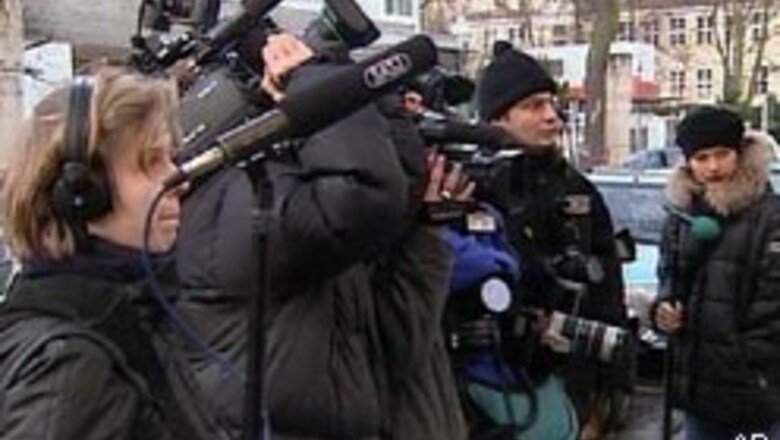
views
Paris: At least 81 reporters were killed in 2006, the highest toll in more than a decade, with Iraq once again proving the deadliest place for journalists, media watchdog Reporters without Borders (RSF) said.
In its annual report, RSF said on Sunday that 32 media assistants were also killed this year, at least 871 reporters arrested and at least 1,472 attacks or threats against the media registered around the world -- a new record.
RSF said it was the worst year for journalists since 1994, when 103 reporters died as a direct result of their work, almost half of them during the genocide in Rwanda.
In 2005, 63 reporters were killed against 53 in 2004 and 40 in 2003. For the fourth year running, Iraq claimed the highest number of deaths, with 39 journalists killed there against 24 in 2005.
Some 25 media assistants also died in Iraq in 2006. ''Since the beginning of the war (in 2003), 139 journalists have been killed in Iraq, more than double the number of journalists killed during 20 years of war in Vietnam,'' the
Paris-based media watchdog said.
''In almost 90 per cent of cases, the victims have been Iraqi journalists. Investigations have been extremely rare or else never took place,'' the report added.
A separate report by the US-based Committee to Protect Journalists said earlier this month that 55 journalists were killed as a result of their work during 2006, against 47 in 2005.
Another 27 deaths were possibly work-related, it said. Media organisations produce different death tolls partly because they use different criteria to classify reporters.
Mexico, Philippines and Russia in spotlight
RSF said the second most dangerous place for reporters this year was Mexico, which had overtaken Colombia to become the deadliest country for the media in the Americas.
Nine reporters were killed in Mexico in 2006 while trying to investigate drug traffickers or cover social violence.
The Philippines was the third most deadly country, registering sixth deaths -- down one on 2005.
Russia also proved a dangerous place, with three journalists killed there during the year, including Anna Politkovskaya, an outspoken critic of President Vladimir Putin, who was shot dead in central Moscow in October.
“In all, 21 (journalists) have been killed (in Russia) since Vladmir Putin took power in March 2000,'' RSF said, adding the Kremlin had put together a team of 150 investigators to look into the Politkovskaya killing.
RSF said that the high number of threats and attacks against the media was partly explained by the high number of election campaigns seen this year around the world, with reporters targeted in Peru, Brazil, the Democratic Republic of Congo, Belarus, Uganda and Ethiopia.
The media group said the situation in Bangladesh was particularly bad ahead of elections in 2007.
''Attacks on journalists, already frequent in normal times, have become daily by year end,'' it said, blaming both security forces and political parties for the violence.
RSF said that the number of registered cases of censorship fell to 912 this year from 1,006 in 2005, with the situation in Nepal notably improving.
But it said the Internet remained tightly controlled in many countries, with 13 states branded as ''enemies of the web'': Saudi Arabia, Belarus, Myanmar, China, North Korea, Cuba, Egypt, Iran, Uzbekistan, Syria, Tunisia, Turkmenistan and Vietnam.
It said more than 30 bloggers were arrested in 2006 and sometimes detained for weeks, with China, Syria and Iran the worst offenders.


















Comments
0 comment